7 Lessons from the Story of Noah — How To Live In A Troubled World
The following seven lessons from the story of Noah offer a wealth of wisdom applicable to our lives today.
Noah, a righteous man in a corrupt world, was told by God to build an ark and save his family, along with representative pairs of all animal species, from a devastating flood. This monumental task demonstrated not only his faith in God but also his unwavering commitment to following divine instructions.
Among many lessons, the story of Noah teaches us the value of obedience, trust, and perseverance, even in the face of obstacles and adversity.
Here are seven lessons from the story of Noah and their real-world implications:
Lesson 1 – Trusting God In Difficult Times
Above all, Noah’s Ark is a story of hope. This story should offer relief to anyone who frets about struggles in their personal life or the world at large.
Historical Context: We, Too, Live In Less Than Perfect Times
Noah did indeed live in difficult times. Or, as it says in the Bible, during a time when the world was filled with wickedness and evil deeds.
Well, guess what? So have people in every generation. In our country, there have been the days of slavery, civil war, world wars, and civil rights protests, to name a few.
Today, we have wars in Europe and the Middle East. And at home, we deal with a dire economy and societal upheaval, unlike anything I have seen in my lifetime. Add to that a lot of corruption in our government, the justice system, and the media. So, in many ways, we are aligned today with Noah’s times.
And like in the days of Noah, doing the right thing and living for God’s truth is often mocked. There is no better example of this today than the coming about of the equity agenda and the transgender movement, both completely at odds with godly principles.
The Power Of Faith: Overcoming Adversity
In modern times, it’s important to remember that Noah remained steadfast in his faith and completed the ark. Noah’s unwavering trust in God overcame any doubts or fears he may have amidst the naysayers and nonbelievers.
The story of Noah is a powerful reminder that trusting God in difficult times is essential to our spiritual growth and well-being. Just as the ark protected Noah and his family in the storm, our faith will carry us through times of adversity, provided we put our faith in the hands of the Creator.
Remember, difficulties and uncertainty are a part of life. Not simply bad luck or a sign of God’s disapproval of you. Instead of throwing your hands up in despair, adopt the mindset that difficult times are a way to fortify your trust in God.
And then, be confident that said trust in your Creator will pave the way to better times. This has been my experience time after time. Truth be told, God’s wisdom, mercy, and kindness through tough times in my life is the primary reason I started this writing project.
How To “Trust God In Difficult Times”
Admittedly, at first, this is a task easier said than done. And I still struggle a bit when challenges come unexpectedly hard and fast. But the first thing I do is:
- Take a time-out — This means purposely finding a quiet place to talk to God. This is not a time for pre-planned prayers. It’s just a moment to talk to God like you would a friend. No time limit. It is just a time to completely divulge every detail of my feelings, struggles, challenges…etc. I cannot say enough about the level of peace and tranquility I have after this initial time-out.
- Recount past challenges — I keep a list of hardships I’ve been through and their outcome. Looking back, I can clearly see the “hand of God” within my documented challenges. So, “In case of emergency,” I break glass and review the list for context and motivation.
- Review verses — The last time I did this, I asked ChatGPT(A.I.) for twenty-five Bible verses about “trusting God” under challenging times. I took my time and read the list repeatedly over a few days.
- Shrink your point-of-view — instead of focusing on my problem at large, I shrink my perspective to a daily one. Or, as they say in team sports, I focus on “winning the day.” I mentally block out my overarching perspective of the dire circumstance. And restrict myself to mentally processing what I can do to remedy my situation on that particular day. And do the same the next day. And so on. It’s not the easiest thing to do, but it’s a significant component of retaining my sanity during specific low periods.
- Continue to communicate with God — easy enough — continue to talk to God throughout the length of your ordeal. Just as you would a friend.
The bottom line is I substantially increase my intake of godly messaging during challenging periods in my life. And that’s how I strengthen my trust in difficult times.
Lesson 2 – Disobeying God Has Real-life Consequences
The Great Flood: A Story of God’s Care and Judgment
“And God regretted having made humankind on earth with a sorrowful heart” (Genesis 6:6)
In the days of Noah, great sin brought about The Great Flood. The story of Noah in the Bible shows us that God cares.
God knows there are consequences for sin imbued in the world He created. And that means suffering for His creation.
Yes, the story of Noah put forth the most dire consequence for “wickedness and sin.” But…
The Consequences of Disobedience to God in Today’s World
Today, we suffer the consequences of disobedience to God’s instruction in similarly painful ways. Specifically, with the current breakdown of morality and ethics in our society, we see the rise of crime, terrorism, war, poverty, and other forms of oppression and exploitation.
Or ponder how these days societies view having babies “out-of-wedlock” as “harmless.” Some would even say “empowering.”
But in reality, the consequences of this sin are devastating. Starting with the level of emotional trauma and strife for all parties involved. Whether it’s custody turmoil, visitation drama, or the stresses of out-of-wedlock financial obligations, these are real-world consequences of disobedience to God’s format for an optimally lived life.
The Most Consequential Loss: Connection to God
Lastly, and what I consider the most crucial consequence of straying from God’s ways — loss of connection to God Himself.
This consequence is the most significant because a loss of relationship with God means YOUR own reasoning underwrites all your decisions. You are your own life advisor.
And guess what? Millions of humans have lived in this worldly trap throughout time with disastrous consequences.
I bet you don’t have to look far in your own life to notice how that loss of connection to God adversely affects people in your life. I know I don’t.
Do you want to know how to have better relationships? My connection with God helped me immensely in that regard.
Lesson 3 – The Power of Repentance and Forgiveness
The Ark: A Symbol of God’s Mercy and Preservation
The primary lesson here is the importance of repentance. As humans, we are prone to making mistakes and giving in to sinful desires. However, we have a unique capacity to recognize our shortcomings and turn to God, seeking His forgiveness.
Seeking God’s forgiveness for the wrong we do in life is the #1 message of the entire Bible.
The ark represents a refuge from a stormy world. Just as God preserved the most righteous(Noah), so will God offer you cover if you turn to Him in repentance. And hence, you’ll bask in His forgiveness and mercies, like Noah aboard the ark.
Responsibility and Accountability: Another Lesson from the Flood
Reading the story of Noah also teaches us about accepting responsibility for our actions. God held each person responsible for their choices, leading to the flood that washed away all but the most righteous.
In today’s world, it is easy to “go with the flow” that everyone else is going. For example, a society that sanctions abortion on demand may not appear wicked by that society’s standards.
But ultimately, who’s judging you? Who are you accountable to? The people of The Flood found the answers to those questions the hard way.
This is why it is essential to take responsibility for OUR actions and strive to make amends for any wrongdoing. And for that, we need to look to our Creator for guidance above all.

The Rainbow: A Sign of God’s Covenant and Forgiveness
As Noah emerged from the ark and stepped onto dry land, God made a covenant with him (Genesis 9:13-16) by promising never to destroy the world again.
This event reminds us of the eternal value of forgiveness.
A rainbow symbolizes the covenant. This powerful image represents the merciful nature of God and how He is always ready to forgive us when we genuinely repent.
Repentance and Forgiveness in Today’s World: A Path to Growth and Renewal
In today’s world, applying the lessons of repentance and forgiveness can lead to personal growth, stronger relationships, a cohesive society, and a deeper connection with God—basically, an all-around better world.
Notice all the bad outcomes that spring from people in society or your own life, not admitting when they are wrong. I tell my children that being unrepentant for wrongdoing often means dealing in deceit. Which often leads you down the rabbit hole of negative feelings and bad decisions.
The main idea of the story of Noah and The Flood is to emphasize his righteousness by pointing to his faith and humility. The latter is the critical ingredient to repentance.
May you grow in faith, strengthen your humility, and learn to admit wrongdoing in order to navigate the storms of life and maximize personal growth.
Lesson 4 – The Importance Of Gratitude
How Noah’s Story Teaches Us To Be Thankful
In my time studying the story of Noah, one key lesson that stands out is the importance of gratitude. When the floodwaters subsided and Noah stepped out of the ark, he did not take his salvation for granted. Instead, he built an altar to the Lord and offered a sacrifice of thanksgiving (Genesis 8:20). This act of gratitude teaches us the value of recognizing life’s blessings, even in times of hardship.
Appreciate The Simple Blessings Of Life
In our fast-paced, modern world, it’s easy to overlook life’s simple blessings. It could be something as trivial as a cup of coffee in the morning or as vital as the roof over our heads.
This is why the story of Noah reminds us to take a moment to appreciate the myriad of little miracles that brighten our everyday lives. And this is accomplished in The Flood story by simply showing us how precious and fragile life is.
I’m sure a significant component of the wickedness prevalent in Noah’s time was typified by a self-indulgent and self-centered population. Which, by definition, denotes a selfish mindset that doesn’t lend itself to much appreciation or awareness of the truly substantive blessings in one’s life.
The lesson for us is — Noah and his family must have felt a profound sense of gratitude for surviving the catastrophe and seeing the beauty of the renewed earth. Let us, too, be thankful for the gift of life and the wonders of creation, which we often take for granted.
Gratitude Deepens Our Relationship With The Divine
Gratitude also has a deeper, more profound significance in our spiritual journey. When we express gratitude, we acknowledge the divine source of all our blessings.
And just in case you need proof that you are not the sole controlling force of your existence, I offer the following food for thought, which resonated when I first heard it.
And that is, you can control many functions of your body. You can close your eyes, stomp your feet, and flex your muscles. But you can’t willingly stop vital organs, namely your heart. “Whatever” created you didn’t give you that ability.
Our acknowledgment of the latter, along with the rest of our daily blessings, helps us cultivate a deeper relationship with our Creator. Which, in turn, leads to growth in our faith.
How To Establish A Daily Gratitude Practice
Do what I do.
First, have the understanding that your whole existence is a blessing. And then continuously express gratitude for ANYTHING in your everyday life.
Examples from my daily conversations with God include giving thanks for opening my eyes in the morning, the food that I eat, and the tools I use that facilitate my life. I am also grateful for the people in my life and their daily safe travels. Anything is an opportunity to express gratitude. Even appreciating LukeSky, my cool-as-heck orange cat.
The point of all this is to be consistently grateful.
As you incorporate this practice into your daily routine, you’ll slowly develop an attitude of gratitude that permeates and blesses every aspect of your life.
Lesson 5 – The Power of Redemption
How Noah’s Story Shows Us The Possibility Of Redemption
Amid humanity’s wickedness, Noah found favor in the eyes of God. This simple yet powerful truth teaches us that no matter how far we’ve drifted from our divine purpose, there’s always room to turn back.
How To Find Redemption In Our Modern World
Start by following Noah’s example.
These days, society may be filled with moral decay, selfishness, and deceit, but there’s always hope.
First, God promised never to wipe out humanity ever again. So, breathe a sigh of relief. And secondly, choose to align your values with your Creator’s.
In Noah’s time, the world’s people scoffed at the idea of Noah building an ark.
You, too, can ignore naysayers and choose to follow the divine purpose God has for you. And just like Noah, the decision to do so will undoubtedly enhance your life.
That certainly has been my experience after I turned to God and found my redemption.
How To Be A Light In A World Filled With Darkness
Following God’s commands, Noah was that light in an otherwise wicked world. The same principle applies to you.
By reflecting godly qualities to anyone you come in contact with — that brings light into our dark world—acts like showing kindness and support to others illuminate lives and communities at large.
In other words, practice selfless acts that reflect our love for God, as we are His vessels to bring light into the world.
.
Lesson 6 – Endure Hardship With Patience

How Noah’s Story Inspires Us To Remain Steadfast In Our Faith
Life often throws hardships and trials our way. Having lived half a century, I never imagined I would live in times like these. From my point of view, humanity peaked in the late 1990s to early 2000s. I say that mostly in jest, but I digress.
To see communities disintegrate because of lawlessness has been unsettling. To witness the complete lack of border security in our country has been jarring. I’m not saying the justice system was perfect, but these days, it’s like they have stopped trying to implement equal justice.
It seems like I am witnessing a complete breakdown of a society’s moral fabric in many areas.
And, of course, all of this is very reminiscent of the times of Noah. Thus, as I see it, I am front and center to get on “The Ark.”
The story of Noah teaches us to endure these challenges with patience. As I read the account of Noah in the biblical book of Genesis, I am reminded of the importance of remaining steadfast in our faith and trust in God, even when the world around us seems to be falling apart.
My only response is—” will do.” God’s influence is the only thing that has made sense during these seemingly dystopian times.
How Noah’s Patience Fulfilled God’s Plan
I have learned that Noah’s endurance and patience during the Great Flood were not only for his family’s survival but also to fulfill God’s plan. Noah faced monumental tasks: building the ark, gathering all living creatures, and living on the ark for an entire year without losing hope or faith in God’s promise.
Are there persistent challenges in your life that you wonder why they keep presenting themselves? They are in mine!
And if so, Noah feels you. Despite all the difficulties and uncertainties, Noah displayed unwavering patience and trust in the Almighty.
The lesson for you and me is — hold tight! God had a plan all along in the case of Noah. God has a plan all along in the case of every one of us.
This strategy of being patient has opened my eyes a few times when I finally witnessed the outcome of a perceived challenge. Let’s just say, looking back, God came through in the most unexpected ways.
How To Grow Stronger And Wiser Through Our Hardships
Like Noah, it’s crucial to realize that our hardships are not purposeless. They catalyze personal growth, and enduring them with patience will make us stronger and wiser.
I, for one, have developed a habit of chronicling my “perceived” tough times and challenges. I write down my preconceived burdens about my situation. Then, I ask God for guidance in methodically navigating my setback.
As Noah would probably have concurred, the hard part is waiting to see how your troubles unfold. But being patient and working diligently is the key to obtaining personal growth and wisdom from your tough times.
And, like in the story of Noah, God has a plan.
Looking back, working Noah’s plan and being patient during my most meaningful hardship manifested into what you see here—a substantive connection to my Creator and a motivation to share the wisdom God imparted during my days of struggle.
That was God’s plan, and today, I am undoubtedly stronger and wiser for following the path of Noah.
How To Apply Noah’s Lesson Of Patience To Our Contemporary Lives
In a world seemingly ruled by hyper-connectivity and instant satisfaction, this seems like a tall task.
However, I maintain focus and patience through hard times by unplugging and minimizing outside noise. From experience, I’ve learned the secular world has nothing of value to add to what are often spiritual issues I’m going through.
So, I seek further advice within my faith to garner the necessary strength and focus to remain patient. (Btw these days, with the advent of AI, it’s easier than ever to search for Bible references that relate to a specific life circumstance. Doing this routinely uplifts me and strengthens my ability to be patient.)
Also, patience is made easier when you believe God has a plan and there will be a payoff. So, I do. And then I eagerly work and wait.
Another bonus of practicing patience when going through struggles is better decision-making. I am always amazed by how different my final circumstance is when I decide to be patient instead of if I would have gone with my initial reaction.
To which I exclaim every time—” God is good!”
How To Embrace The Virtue Of Patience And Trust In God’s Plan
I hate to be trite, but the answer is—by just doing it.
As I mentioned up top, I write down my perceived hardships and their outcomes. By now, I have a pretty lengthy track record of understanding how God operates. And the answer is unlike anything I could have ever imagined.
For starters, I never imagined I could be this engaged by learning “things of God.” But here He led me. Also, the way that God led me to find mental peace amid my physical disability is unreal to me. To the way, He lifted my crippling worries about finances.
None of these outcomes after hardships happened overnight. But that somehow they eventually materialized is a miracle to me.
Hence, I’m sold. My intel says He’s got it. He’s got a plan. And I follow it(be patient and trust, that is).
Lesson 7 – Do Not Listen To Naysayers

How Noah’s Story Teaches Us To Overcome Skepticism
Another of the powerful lessons from the story of Noah deals with not giving in to naysayers. Noah faced tremendous skepticism and disbelief when he started building the ark. The people around mocked him, but Noah did not waver in his faith. He knew that he was following the instructions given to him by God.
In many ways, we are all in the same boat as Noah(no pun intended).
Only these days, the mockers are the secular types that routinely disparage religion. But like Noah, don’t be discouraged and stick to your God-based convictions.
It has been my experience that as time goes by, the lunacy of nonbelievers only solidifies my faith in the One and only Creator of existence.
And like in the times of Noah, these modern-day mockers end up drowning in a sea of falsehoods and living in the land of fantasy. After all, a lack of humility and belief in something higher than oneself is the only way anyone can confidently assert that a man can become a woman.
So stay the course and be convicted in God’s ways like Noah.
How To Ignore The Negativity And Focus On Our Goals And Beliefs
It all comes down to the depth of your connection to God.
I had a situation where, at the start of my journey to knowing God, someone close to me became dismissive of my beliefs. I struggled initially because I had known this individual for over twenty years and generally respected his views.
Although I didn’t know it then, like Noah, I continued “building the ark” as God commanded, despite the skepticism. I realized that my connection to God and what He was showing me was powerful.
Strong enough to remain steadfast in my beliefs and officially ask my naysaying friend to cease contact. As I write this, it has been three years and counting.
I credit the strength of my connection to God for allowing me to do away with the negativity surrounding my beliefs.
How To Deal With Naysayers In A Practical Way
First and foremost, I rely on God’s advice for the foundation of any subject or idea I am dealing with.
And after absorbing God’s message, I focus on attaining constructive feedback or advice from those who share my values. It’s pretty simple. Instead of giving credence to the negative opinions of those who undermine my beliefs, I seek the counsel of like-minded individuals that I trust.
This is also good advice when evaluating relationships and who to spend time with.
Adhering to this decision-making approach — naysayers won’t faze you.
How To Stay True To Ourselves And Accomplish Great Things
In today’s world, it’s easy to be swayed by popular opinions and lose sight of our convictions. Everyone is sharing their opinion everywhere you look throughout cyberspace.
However, we can learn from Noah that we must hold firm to our beliefs and not allow the negativity of others to deter us from our God-inspired path.
The key is to work tirelessly to maintain a God-centered existence. And then letting that truth permeate outward onto everything you’re involved with. That is what God expects from every one of us.
And that is how, like Noah, we would all live for God’s will and accomplish great things in this world.
Conclusion: Follow Noah’s Advice If You Don’t Want To Learn How To Swim🙂
These lessons from the story of Noah resonate profoundly in our lives today.
First, obedience to God’s commandments is crucial. Just as Noah heeded God’s instructions to build the ark, we must also be attentive and faithful in obeying God’s commands.
Another lesson is the importance of righteousness. Noah was considered a blameless man in an era of corruption and wickedness. This teaches us to strive for a life characterized by uprightness and moral integrity. Additionally, the principle of divine judgment is clearly evident in this story. God’s judgment upon the earth and its inhabitants warns that evil will not go unpunished. It is our responsibility to align ourselves with God’s expectations.
Furthermore, Noah’s unwavering faith can inspire us to trust God’s promise, even in the face of ridicule or adversity. Noah’s perseverance in building the ark, despite the apparent absurdity of his actions to the people of his time, demonstrated his conviction in God’s plan.
Lastly, the story of Noah highlights the significance of grace. God’s decision to spare Noah and his family amidst the destruction serves as a reminder that God extends mercy and compassion to those who seek righteousness. This lesson encourages us to be receptive to God’s grace and be grateful for the divine protection it affords us.
In conclusion, by embracing these principles, we can cultivate a meaningful relationship with God and confidently navigate life’s challenges.
Frequently Asked Questions

What is the moral lesson of Noah’s Ark?
The moral lesson of Noah’s Ark is the importance of faith, obedience, and remaining righteous even in a corrupt world. Noah was a righteous man who followed God’s command to build an ark to save his family and a pair of every animal species from the impending flood. In a world filled with wickedness, Noah’s unwavering faith in God and his commitment to follow His instructions led to the preservation of life on Earth.
What lessons can be applied from Noah’s Ark in everyday life?
There are several lessons from the story of Noah that we can apply in everyday life. First, the importance of faith and trust in God’s plan, even when it may seem difficult or impossible. Second, obedience to God’s commands, as Noah demonstrated by following precise instructions to build the ark. Third, standing firm in righteousness, as Noah did amidst a corrupt society. Finally, we can learn from the reciprocal relationship between God and humanity, the significance of fulfilling our responsibilities and commitments, and recognizing the consequences of our decisions.
What is the summary of the story of Noah?
The story of Noah begins with him being a righteous man in a wicked world. The Almighty decides to cleanse the Earth of corruption using a great flood, and God tells Noah to build an ark. Noah, his family, and a pair of every animal species are to board the ark to escape the floodwaters. Noah obeys, and after the flood, the waters recede. God establishes a covenant with Noah, promising never to destroy the Earth with water again. The story serves as a reminder of God’s judgment, mercy, and the importance of remaining righteous and faithful.
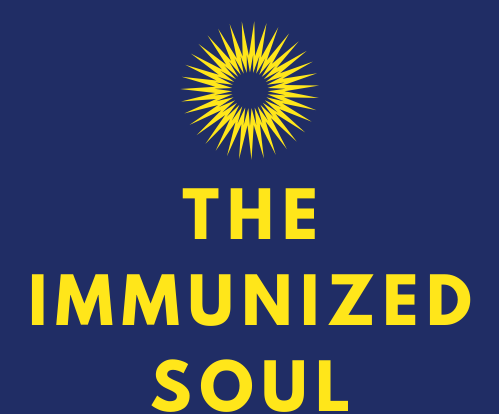
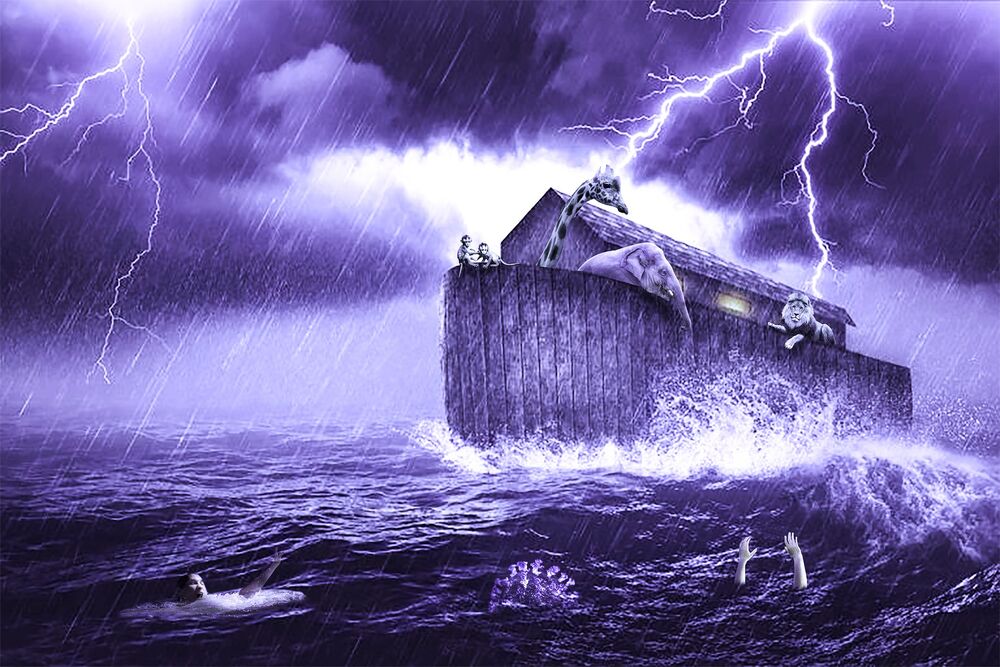

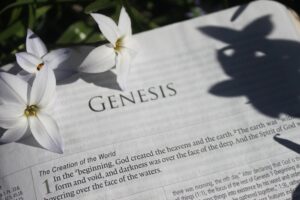
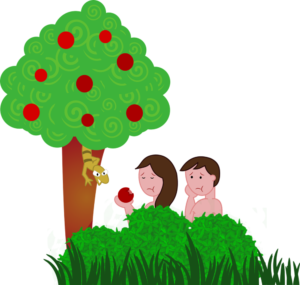


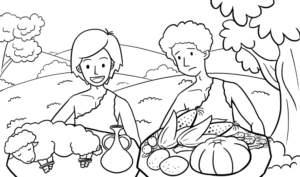
I enjoyed reading this breakdown, thanks for sharing. I deeply resonated the part about staying away from naysayers. So true these days.
Thx M
Trusting God is key though is getting tougher every single day😊.
No doubt:) 🙏🏻
Am enjoying reading and understand wat Noah went through.wat a man of faith.